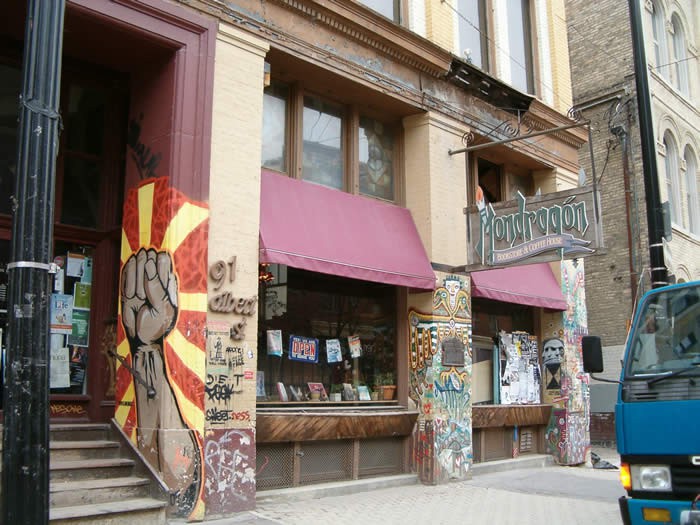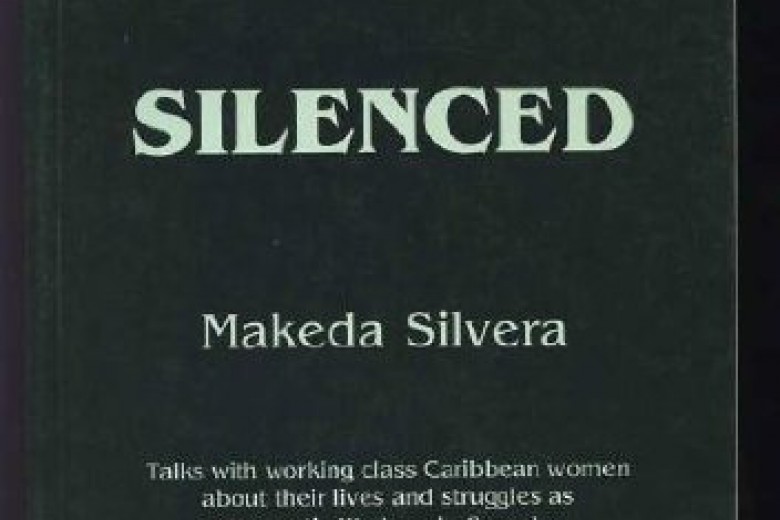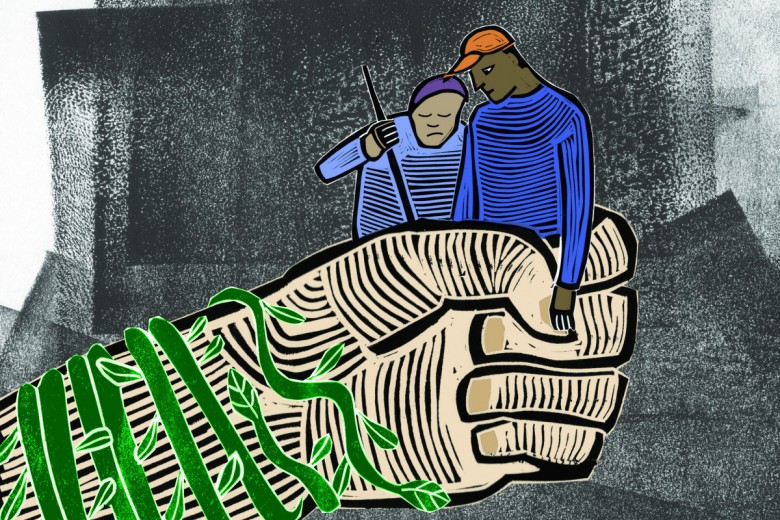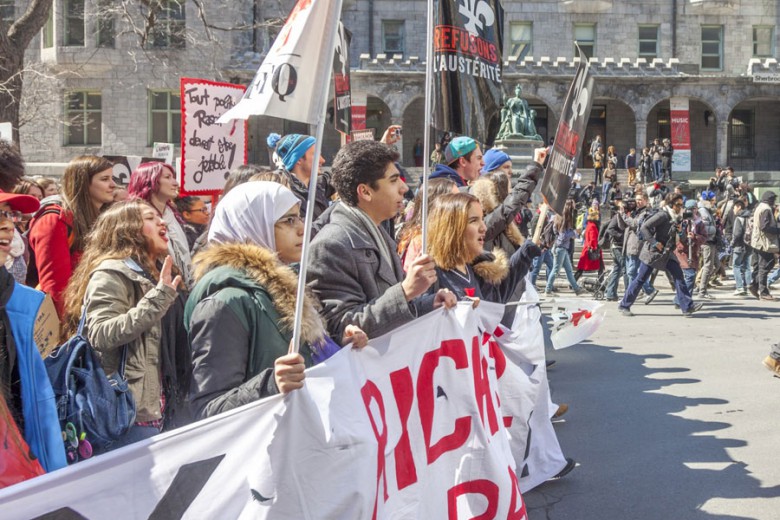
Mondragon has closed.
Winnipeg’s beautiful trouble of an anarchist workers’ co-operative served its community as coffee shop, bookstore, grocer, and more for 18 ever-evolving years before finally locking its doors for good this past January, victim of another gentrifying city core. Mondragon was a hotbed of western identity and independence. Of the people and for the people, Mondragon taught us not that we can, but that we are.
The Prairies have always had their own mythology: “It’s cold; we have to stick together.” From before European settlement and on through colonization, communal interdependence has been vital to surviving this terrain. We came by our decentralized populism naturally. This is the land of Louis Riel and Tommy Douglas, where industrial capitalism was fought with rebellions, treks, riots, and strikes. The land, as Tommy said, where mice should see the cats for who they truly are.
It is no surprise, then, that co-operatives in name and in spirit have been so foundational to Prairie culture. Co-ops stand for two fundamental principles: localized, democratic infrastructure and ethical exchange. Economies of scarcity, rife as they are with abuse, inevitably force workers to unite. This unity is the fiery heart of the co-operative. Such unity possesses the power to enforce humanity upon a machine obsessed with grinding it out of existence. The co-op insists there is worth beyond the ledger, that communal sustainability trumps corporate growth.
So why did Mondragon close?
In a world begging for community, what’s happening to co-ops on the Prairies? The answer has three components. The first concerns the very nature of capitalism, which succeeds due to its commitment to profit. This spurs a continuous, accelerating race to the bottom. In this world, co-ops become victims of their own success. As they grow – after all, co-ops are more than twice as likely as other models to survive for at least 10 years – co-ops increasingly feel pressure to adopt capitalist practices at the expense of moral obligation, practices that hollow the co-operative of its significance.
External, professionalized management is often recruited to better compete with corporate rivals – at the expense of labour-based democracy and accountability. To attract management, tiered wages conforming to industry standards become necessary, violating core co-op principles. With new management bolted on, the workforce becomes split, and authority is siphoned out of the community. At this point, the subversiveness of a co-operative becomes nothing more than boilerplate for the office letterhead.
The second thing is that the demands of moral economies have shifted. Co-ops must either adapt or sink into irrelevance. Historically, workers’ co-ops defended the rights of their communities. However, modern social justice is only more shuffling of deck chairs if it does not seriously consider environmental impact. As I write this, I look out my window here in Regina to the puffing smoke of an oil refinery owned by the “Co-op.” Indeed. The time for a new bottom line, where environmental sustainability takes its essential place alongside social welfare, is now. Co-ops, then, must resist the diluting pull of corporatization while simultaneously bolstering their core principles to match a changing world.
The third part of the answer lies within each of us. How could we on the Prairies, known for the fabric of co-operativism that is woven into us, allow Mondragon to fall? In post-scarcity economies, like much of modern settler Canada, communal responsibility takes a back seat to individual economic pursuits. The nouveau riche suffer from boom-induced amnesia and can’t see past their own bootstraps. The result? An oily apathy smothering any social or environmental concerns.
Our “free” market achieves perfection only through total corporate domination, freed from human concern. Its influence already nearly perfectly eclipses all aspects of our reality: product shipped in and profit trucked out, while petro dollars, absentee investor states, and bubble nations ride boom-bust cycles into the coming corporate nirvana. The prosperity of local enterprise must be foundational to any ideology which pursues human dignity and sustainability. But then, as John Restakis says in Humanizing the Economy: Co-operatives in the Age of Capital, “the inability to imagine an alternative is the final triumph of an ideology.”
And the true subversiveness of the co-op? Anyone can start creating one tomorrow, no revolution required. In a troubled world where solutions end up so vast it’s easy to get lost just finding perspective, that is an inspired truth. The debate over which economic theory will cure the myriad diseases of capitalism will – and must – continue. But while such discussions take place, workers’ co-ops provide an economic outlet that doesn’t demand deal after deal with devil after devil. They prove that change is possible wherever there is a community united and determined. Let this be the enduring lesson of Mondragon.
This spring a new co-operative cafe and bookstore called Black Phoenix will open in the former Mondragon space of the A-Zone building. – Editor’s note






